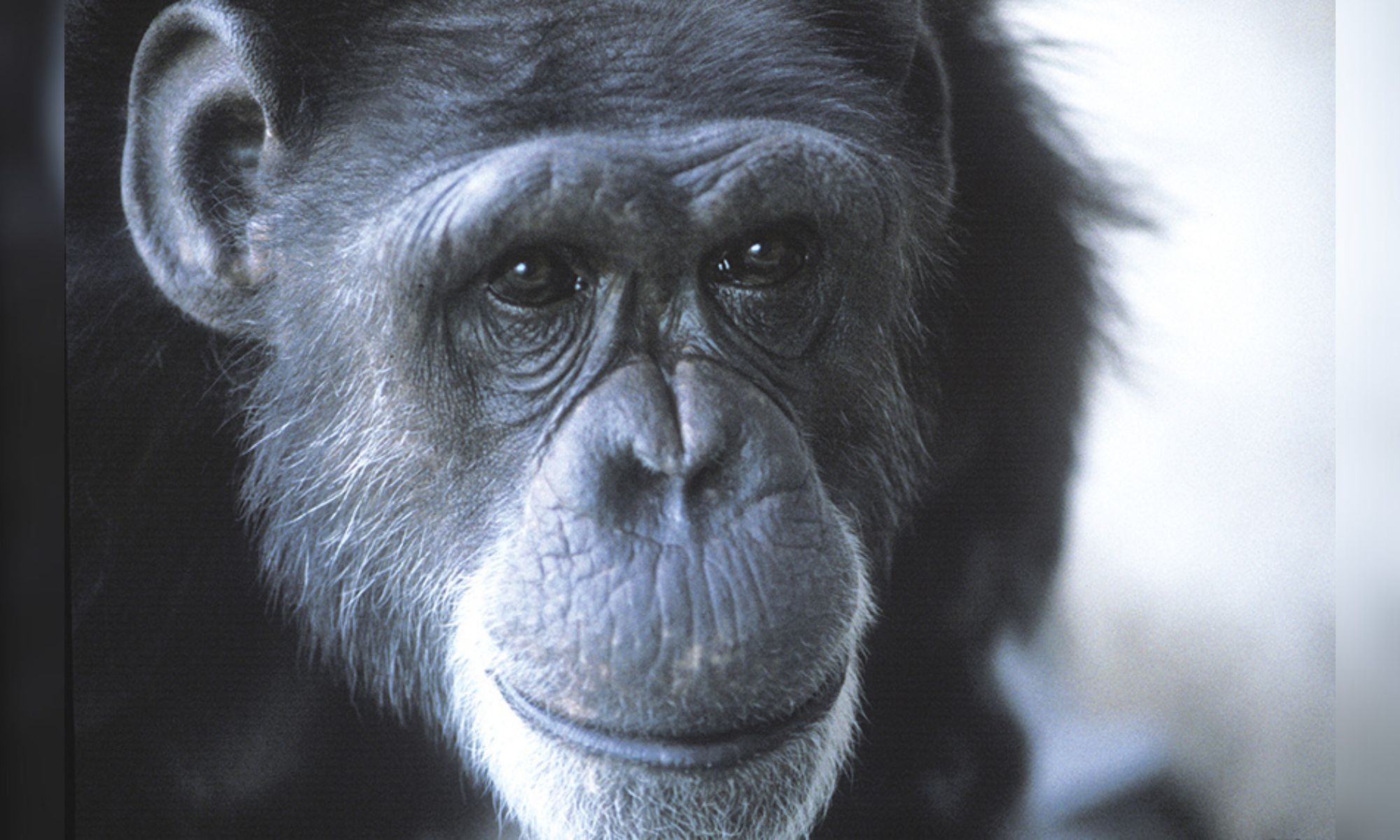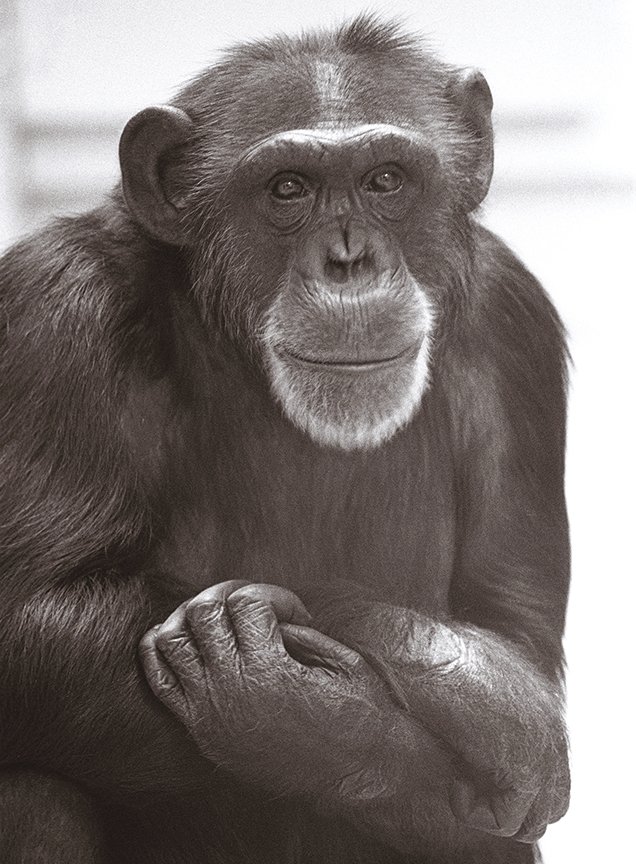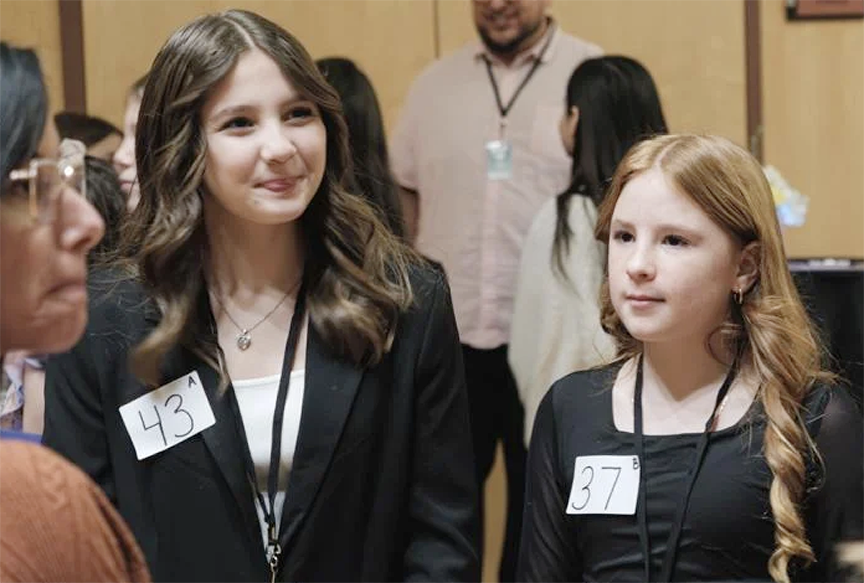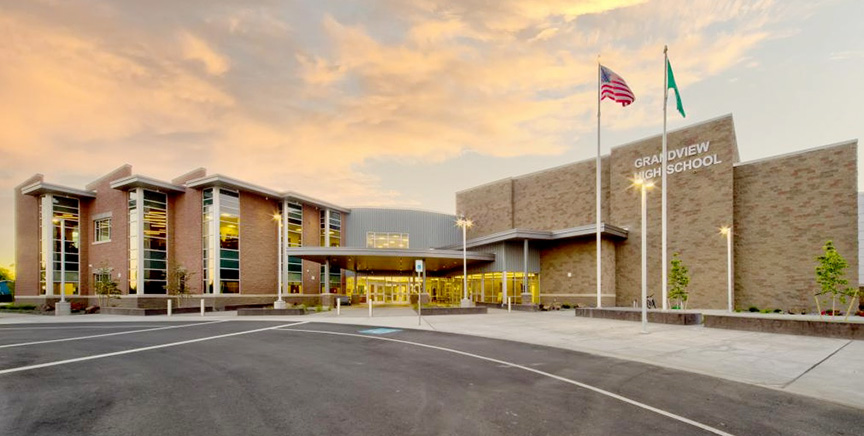Washoe the chimpanzee, who spent most of her life at CWU, featured on science website
- August 23, 2023
- David Leder

One of Central Washington University's best-known, non-human former residents was featured last week in an article on the United Kingdom-based website IFL Science.
Washoe lived at the Chimpanzee and Human Communication Institute (CHCI) on the Ellensburg campus from 1980 until she passed away in 2007. This photo was taken by a CWU photographer in 2003.
Washoe the chimpanzee lived in the Chimpanzee and Human Communication Institute (CHCI) on the Ellensburg campus from 1980 until she passed away in 2007. She became known around the world as the first chimpanzee to learn a human language and pass it on to another primate.
The IFL Science article focused on Washoe's ability to learn American Sign Language (ASL) and teach it to her adopted son, Loulis-one of two living members of Washoe's family, along with Tatu, a female. They are now under the care of the Fauna Foundation, a chimpanzee sanctuary in Quebec, Canada, in collaboration with the nonprofit organization Friends of Washoe.
Washoe was born in West Africa in 1965 and captured by the Air Force for research on behalf of the U.S. space program. She was named after Washoe County, Nevada, where she was raised by University of Nevada-Reno scientists Allen and Beatrix Gardner from 1967-72.
The Gardners treated Washoe as if she were their own child, communicating with her only in ASL and helping her learn approximately 250 signs. According to CWU Senior Lecturer Dr. Mary Lee Jensvold, who also represents the Fauna Foundation, the Gardners and their graduate students used a procedure called "cross-fostering," where one species is raised as another.

"Washoe and, later, other chimpanzees Tatu, Dar, and Moja were also raised like human children" and eventually joined her at CHCI, Jensvold said.
When Washoe was 5 years old, she was moved to the University of Oklahoma's Institute of Primate Studies under the care of Roger and Deborah Fouts. Roger Fouts was one of the Gardners' grad students in the 1970s, and began serving as a CWU psychology professor in 1980.
While with Washoe, the Gardners and their students communicated only in ASL, rather than using vocal communication, on the assumption that this would create a less confusing learning environment for the chimpanzee. Some described this technique as replicating the environment in which human children acquire language, Jensvold said.
The Friends of Washoe website chronicles how Washoe's accomplishments over the course of three decades had profound effects on changing scientific thought, influencing a wide variety of academic disciplines. Her development also has helped humans better understand their responsibilities to our fellow animals.
The organization, founded in 1981, proudly states that "we served the mission of Central Washington University. The sense of compassion and service we fostered prepared students for 'responsible citizenship.'"
"The skills and critical inquiry we taught helped our students live enlightened, productive lives," the website says. "CHCI also played an active role in supporting diversity within the sciences by encouraging women and other minorities to enter science."
Aside from its primary goal of ensuring the well-being and protection of chimpanzees by guaranteeing their freedom from invasive or disruptive research, the CWU-based CHCI also sought to encourage humans to have respect, responsibility, and compassion for our most closely related relatives, the apes.
The institute served as a resource for students, faculty, and visiting scientists by promoting quality, humane research on the communication and behavior of chimpanzees, as well as research that furthered both the care of captive chimpanzees and conservation efforts to save them from extinction.
Jensvold noted that her graduate students still use the data archive on the Ellensburg campus for their research.
"While the chimpanzees have left, the research continues," she said. "Graduate students continue to come to CWU's Primate Behavior MS program to learn about the sign language project with chimpanzees and the lessons of ethical, humble, and humane research."
CWU News

Middle school students develop professional skills at Amazing Shake event
February 25, 2026 by Marketing and Communications

$4 million federal grant aimed at helping with school psychologist shortage
February 25, 2026 by Marketing and Communications